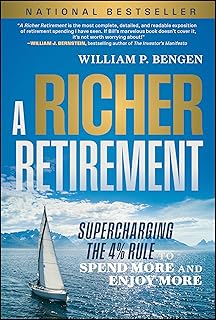Superannuation tax concessions, initially intended to promote saving, have instead exacerbated inequality by primarily benefiting the wealthiest individuals who exploit these concessions to minimize tax obligations. The government’s current efforts to limit tax breaks on superannuation balances exceeding $3 million have sparked debate, with critics arguing that such measures penalize responsible savers. However, the reality is that these concessions have been misused, diverting funds away from their intended purpose of alleviating pressure on the pension system.
Recent reports highlight how some individuals are leveraging superannuation not for retirement security but rather to amass inheritances for future generations, a practice that perpetuates wealth disparity in society. By enabling affluent individuals to reduce pre-retirement tax liabilities, these concessions essentially shift the financial burden of retirement onto the broader taxpayer base, contradicting claims that such retirees are self-sufficient.
In the past fiscal year, the Treasury Department estimated that superannuation tax concessions resulted in a staggering $51.7 billion in forgone revenue, surpassing the government’s expenditure on the Age Pension. Notably, a substantial portion of these tax benefits, amounting to $17.7 billion, flowed to the wealthiest 10% of Australians, further exacerbating economic inequality. In stark contrast, the bottom 70% of the population received a disproportionately smaller share of these concessions.
These inequitable tax breaks, predominantly benefiting inheritance rather than retirement income, raise concerns about the government’s role in facilitating intergenerational wealth transfers without any inheritance tax in place. A recent study underscored that the bulk of superannuation concessions primarily benefit individuals who were unlikely to rely on the Age Pension, placing additional strain on public funds to support affluent retirees who are already financially secure.
It is essential to differentiate between superannuation as a retirement savings vehicle and as a means of perpetuating wealth through inheritance. Government resources should not be channeled towards subsidizing the estates of the wealthiest in society, especially when these concessions disproportionately favor a select segment of the population. The current system not only fails to alleviate the burden on taxpayers but also perpetuates disparities by subsidizing affluent individuals who do not require additional financial assistance in retirement.
In conclusion, the misuse of superannuation tax concessions to facilitate inheritance rather than retirement income underscores the urgent need for policy reforms that prioritize equitable distribution of benefits and alleviate the strain on public finances. By addressing these disparities and redirecting resources towards those in genuine need, the government can foster a fairer and more sustainable retirement system for all Australians.
📰 Related Articles
- Superannuation Tax Showdown Looms in Parliament Amid Legislative Debate
- Superannuation Tax Debate Intensifies Amid Political Upheavals
- Proposed Tax Reforms Target Superannuation Inequality in Australia
- How Labor’s Superannuation Plan Sparks Election Debate and Tax Reform
- Debate Stirs Over Mandatory Retirement Annuities in Superannuation Policy
📚Book Titles
- Money & Meaning: A Womans Guide to Wealth with Purpose
- What was the Scopes Trial: How One Teachers Arrest Sparked a National Debat
- The Dense Bean Salad Revolution: How TikToks Latest Trend is Transforming Health, Sustainability, and Flavor
- Kickstart Your Wealth: Sneaker Investing for the Modern Collector





